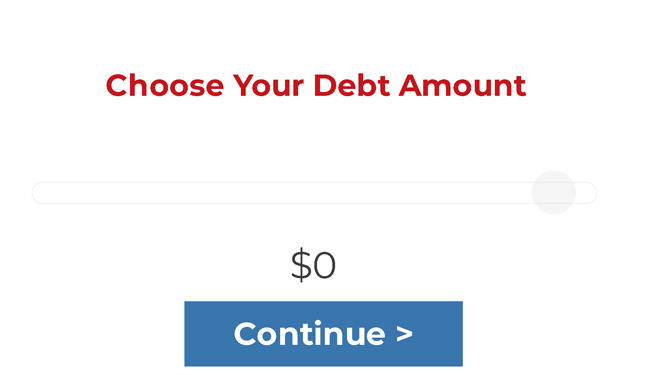Bankruptcy and debt settlement are both options for individuals struggling with overwhelming debt. Bankruptcy is a legal process that allows individuals to eliminate or restructure their debt, while a debt settlement plan involves negotiating with creditors to settle debts for less than the total amount owed.
Financial stability is essential for overall well-being and quality of life. Unmanageable debt can cause stress, anxiety, and even physical health problems. It can also impact credit scores and future financial opportunities.
This article will provide a detailed explanation of bankruptcy and debt settlement, including their benefits and drawbacks. It will also explore the eligibility and process of filing for both options. Additionally, the article will compare bankruptcy with debt settlement and bankruptcy without debt settlement, providing insights into factors to consider when choosing one or the other. Finally, the article will explore alternatives to bankruptcy and debt settlement, including budgeting, financial planning, debt consolidation, and negotiating with creditors.
Understanding Bankruptcy

Bankruptcy is a legal process that in personal loan allows individuals to eliminate or restructure their debt. There are two primary types of bankruptcy for individuals: Chapter 7 and Chapter 13. Chapter 7 bankruptcy is also known as “liquidation bankruptcy” and involves the sale of non-exempt assets to pay off creditors. Chapter 13 bankruptcy is also known as “reorganization bankruptcy” and involves the creation of a repayment plan based on an individual’s income and expenses.
The advantages of bankruptcy include the elimination or restructuring of debt and the protection of assets from creditors. However, bankruptcy can also have significant drawbacks, including the impact on credit scores, the potential loss of assets, and the associated legal and administrative costs.
To be eligible for bankruptcy, individuals must meet certain criteria, including passing a means test to determine their ability to repay debts. The process of filing for bankruptcy involves submitting a petition to the court and attending a hearing with a bankruptcy trustee.
Understanding Debt Settlement
Debt settlement involves negotiating with creditors to settle debts for less than the total amount owed. There are two primary types of debt settlement: self-negotiated debt settlement vs and professional debt settlement. Self-negotiated debt settlement involves negotiating directly with creditors, while professional debt settlement involves hiring a debt settlement company to negotiate on an individual’s behalf.
The advantages of debt settlement include the potential for significant debt reduction and the avoidance of bankruptcy. However, debt settlement can also have drawbacks, including the impact on credit scores and the potential for legal action from creditors.
Debt settlement is typically available to individuals with unsecured debt, such as credit card debt. The process of debt settlement involves negotiating with creditors to settle debts for less than the total amount owed. This can be done through self-negotiation or by using debt settlement companies or hiring a debt settlement company.
Comparison of Bankruptcy and Debt Settlement

Bankruptcy and debt settlement each have their own set of benefits and drawbacks. Bankruptcy provides a fresh start by eliminating or restructuring debt but can have significant impacts on credit scores and the potential loss of assets. Debt settlement can provide significant debt reduction, but can also have a negative impact on credit scores and the potential for legal action from creditors.
Before choosing between bankruptcy and debt settlement, individuals should consider factors such as the type and amount of debt, eligibility requirements, impact on credit scores, and potential legal consequences.
Both bankruptcy and debt settlement can have a negative impact on credit scores in the short term. However, with responsible financial behavior, credit scores can improve over time. Additionally, both the bankruptcy debt settlement options can provide a path to future financial stability by eliminating or reducing debt.
Case Studies
Real-life examples can provide insights into the potential outcomes of bankruptcy and debt settlement. Examples may include individuals who have successfully eliminated or reduced debt through bankruptcy or debt settlement.
Analyzing the experiences and outcomes of individuals who have used bankruptcy and debt settlement can provide insights into the potential benefits and drawbacks of each option. This analysis may include factors such as the type and amount of debt, eligibility requirements, impact on credit scores, and potential legal consequences.
Lessons learned from real-life examples can provide guidance for individuals considering bankruptcy or debt settlement. These lessons may include the importance of seeking professional advice, understanding eligibility requirements, and the potential impact of financial situation on credit scores and future financial opportunities.
Alternatives to Bankruptcy and Debt Settlement
Budgeting and financial planning can help individuals manage their debt and avoid bankruptcy or debt settlement. This a debt management plan may include creating a budget, reducing expenses, and increasing income.
Debt consolidation involves combining multiple debts into a single loan with a lower interest rate. This can make debt more manageable and reduce the risk of bankruptcy or debt settlement.
Negotiating with creditors can be an effective way to reduce debt without resorting to bankruptcy or debt settlement. This may involve negotiating a payment plan or a reduced payoff amount of forgiven debt.
Bankruptcy vs Debt Settlement: Conclusion
Bankruptcy and debt settlement are options for individuals struggling with overwhelming debt. Both options have benefits and drawbacks, and individuals should carefully consider their eligibility and the potential impact on credit scores and future financial stability.
Individuals considering bankruptcy or debt settlement should seek professional advice and carefully weigh their options. Alternatives such as budgeting, financial planning, a debt consolidation loan,, and negotiating with creditors may also be viable options.
Professional advice from legal and financial professionals can provide guidance and support for individuals considering bankruptcy or debt settlement. It is important to understand eligibility requirements, potential impacts on credit scores, and the legal and administrative processes involved.
Frequently Asked Questions

What is bankruptcy?
Bankruptcy is a legal process where an individual or business declares that they are unable to pay off their debts and seeks relief from their creditors.
What is debt settlement?
Debt settlement is a process where an individual or business negotiates with their creditors to settle their outstanding debts for a reduced amount.
Which is better for my credit score: bankruptcy or debt settlement?
Both bankruptcy and debt settlement will have a negative impact on your credit score. However, bankruptcy and debt settlements will have a more severe impact and remain on your credit report for up to 10 years.
Which is more affordable: bankruptcy or debt settlement?
Debt settlement is generally more affordable than bankruptcy because it does not involve court fees pay taxes and legal costs.
Can I choose which debts to settle in debt settlement?
Yes, you can choose which debts to settle in debt settlement negotiations. However, creditors may not be willing to negotiate on certain debts.
Can I keep my assets in bankruptcy?
It depends on the type of bankruptcy you file for. In Chapter 7 bankruptcy, some assets may be sold to pay off debts. In Chapter 13 bankruptcy, you can file bankruptcy and can keep your assets but must repay your debts over a period of time.
Will I be able to get credit after bankruptcy or debt settlement?
It is possible to get credit after bankruptcy or debt settlement, but it may be more difficult and come with higher interest rates late fees.
Will bankruptcy or debt settlement stop creditor harassment?
Both bankruptcy and debt settlement can put a stop to creditor harassment and collection calls.
How long does the bankruptcy or debt settlement process take?
The bankruptcy process can take several months to a year or more, while debt settlement can typically be completed by bankruptcy attorney within 2-4 years.
Can I file for bankruptcy or debt settlement more than once?
Yes, but there are certain restrictions on how often you can file and which type of bankruptcy or debt free you can file for. It is important to consult a bankruptcy or debt settlement attorney before making any decisions.
Glossary
- Bankruptcy – A legal process that allows individuals or businesses to eliminate or restructure their debts.
- Debt settlement – A process in which a debtor negotiates with their creditors to reduce the total amount of debt owed.
- Chapter 7 bankruptcy – A type of bankruptcy that allows individuals to discharge most of their debts, but may require the sale of some assets.
- Chapter 13 bankruptcy – A type of bankruptcy that allows individuals to restructure their debts and pay them off over a period of three to five years.
- Credit score – A numerical representation of a person’s creditworthiness, based on their credit history.
- Debt-to-income ratio – The percentage of a person’s monthly income that is used to pay off debt.
- Exemptions – Assets that are protected from being sold or liquidated during bankruptcy proceedings.
- FICO score – A credit scoring system developed by the Fair Isaac Corporation.
- Garnishment – A legal process in which a creditor can seize a portion of a debtor’s wages or bank account to satisfy a debt.
- Interest rates – The percentage of a loan or credit card balance that is charged as interest.
- Judgment – A legal decision in which a court orders a debtor to pay a creditor a specified amount of money.
- Lien – A legal claim against a debtor’s property, which can be used to secure payment of a debt.
- Minimum payments – The lowest amount a debtor can pay on a credit card or loan without incurring penalties.
- Negotiation – The process of discussing and reaching an agreement between a debtor and creditor.
- Repossession – The legal process of taking back property that was used as collateral for a loan.
- Secured debt – A debt that is backed by collateral, such as a car or house.
- Unsecured debt – A debt that is not backed by collateral, such as credit card debt.
- Wage earner plan – A type of bankruptcy that allows individuals with regular income to pay off their debts over a period of three to five years.
- Bankruptcy trustee – A court-appointed official who oversees bankruptcy proceedings.
- Debt relief – Any process that reduces or eliminates debt obligations, including bankruptcy and debt settlement.






